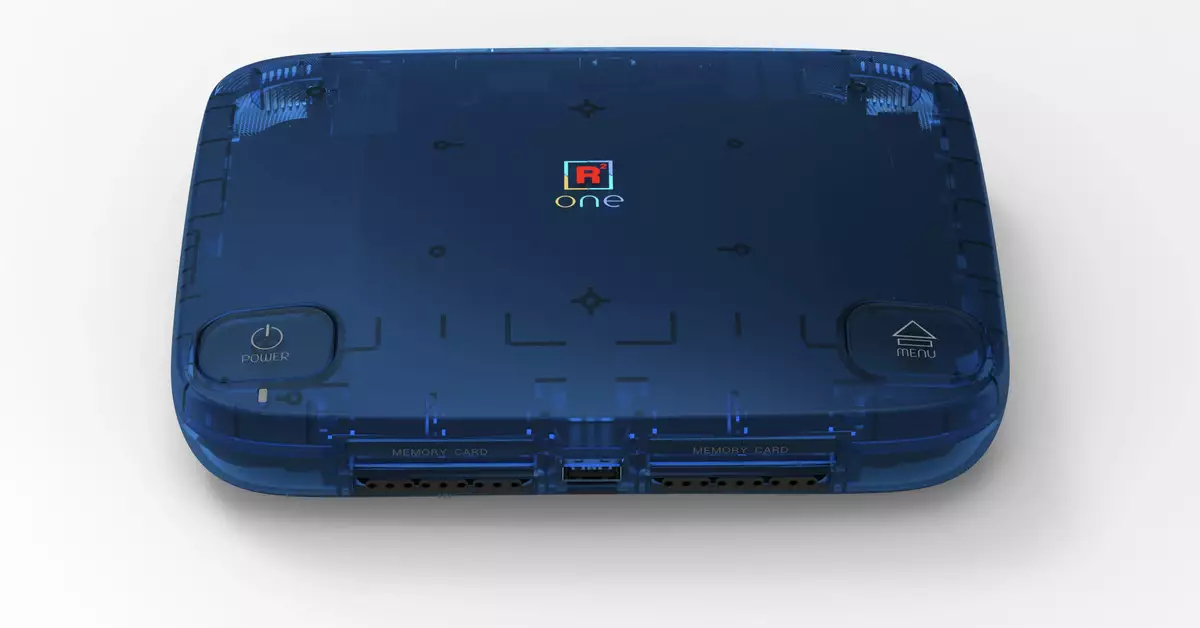In recent years, there has been an extraordinary resurgence in the popularity of retro gaming consoles. Enthusiasts from various age groups are drawn to the nostalgia of their childhood gaming experiences, prompting a wave of new products that aim to capture that sentiment. One of the most intriguing newcomers is the SuperStation One, a modern take on the classic PlayStation One, launched by Retro Remake’s Taki Udon. This console, available for preorder, promises not just to nod to history but to redefine how we interact with retro games.
The SuperStation One is far from an ordinary clone. While it evokes the original PS One aesthetic, it is a sophisticated piece of technology powered by a MiSTER field-programmable gate array (FPGA). This distinction is crucial; rather than relying on software emulation, the SuperStation One’s hardware operates like the original systems it replicates. This allows it to support a broad spectrum of classic games, from Atari 5200 titles to the more beloved NTSC8 and Sega Saturn classics. Such versatility adds significant value for gamers keen on expanding their library beyond a single console’s games.
Moreover, the design choices reflect both function and nostalgia, featuring USB-A ports, an HDMI output, and legacy audio connectivity that allows for integration with older displays. The inclusion of a 64GB Micro SD card is particularly enticing, providing gamers with adequate space for multiple titles right from the get-go.
One of the most exciting aspects of the SuperStation One is its expansion capabilities. An upcoming accessory, the SuperDock, demonstrates Retro Remake’s vision for creating an ecosystem around their products. Though the SuperDock is not yet available for preorder, the promise of a slot-loading disc drive and additional USB ports suggests a commitment to enhancing the user experience. By allowing users to deposit a small amount to secure the SuperDock alongside their console, Retro Remake fosters a sense of community and anticipation among potential buyers.
The planned release timeline also implies that Retro Remake is not in a rush to deliver half-baked products; rather, they want to ensure that their gaming console meets or exceeds customer expectations. By stating that shipping is expected in “Q4 or Earlier,” the company appears to be carefully navigating launch logistics—a wise move in today’s tech world where delays can reflect poorly on a new product.
The anticipation surrounding the SuperStation One is palpable, especially given that the initial Founders Edition sold out rapidly. Priced competitively at $149.99, its quick sellout underscores a growing market for high-quality retro consoles that deliver both nostalgia and advanced gaming features. This reflects a broader market dynamic where consumers are not merely seeking to relive past experiences but are also looking for tech-savvy updates that can integrate into modern gaming settings.
The SuperStation One is positioned to become a significant player in the retro gaming sphere, appealing to both collectors and gamers looking for versatile, high-quality alternatives to overpriced vintage consoles. With a growing catalog of potential games and accessories, Retro Remake may very well be setting the stage for a new era in retro gaming. If they continue to innovate and meet the desires of their audience, the SuperStation One could become a cornerstone of nostalgic gaming in the years to come.

